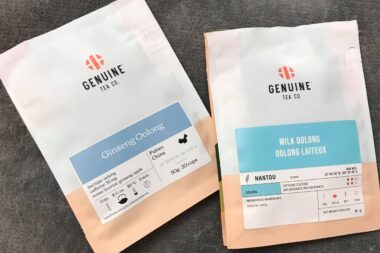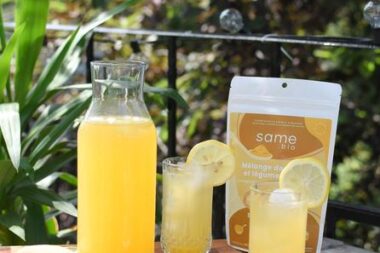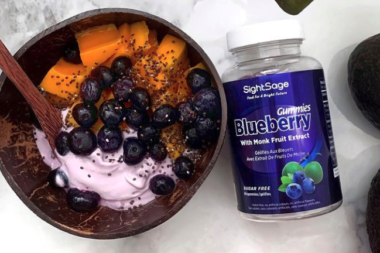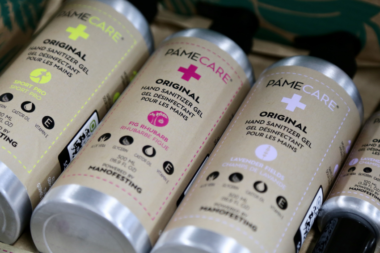 What do people normally do when they catch a common cold or a flu? Usually they take over-the-counter medications or they patiently wait until the body fights the flu itself and completely heals.
What do people normally do when they catch a common cold or a flu? Usually they take over-the-counter medications or they patiently wait until the body fights the flu itself and completely heals.
The field of medicine has made a lot of advancements in recent decades and has found cure and treatment for a great number of diseases but it still lacks an effective remedy for the seasonal colds and flu. The major reason is that there are numerous viruses and bacteria that cause colds and flu and it is quite difficult to formulate specific drugs for each type of virus or bacteria.
What comes handy in these circumstances are the home remedies that have been descending in the asian families from generation to generation. They include the common spices and the herbs that can be easily found in any asian household. The natural properties of the spices such as the antimicrobial and anti-inflammatory effects, are taken full advantage of in fighting against these colds and flu. They yield promising and instant results that even OTC (over the counter) medications sometimes fail to dispense.
Let’s have a look at the traditional spices and other edibles, their amazing properties, and the ways to use them to soothe and heal your body.
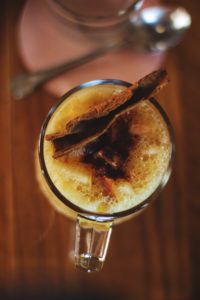 Cinnamon is a bark obtained from several tree species and is known for its pungent and peculiar flavor and aroma. Its flavor comes from the oil that it produces, which is believed to be the source of the healing properties of cinnamon. It is loaded with powerful antioxidants and is also a good source of calcium, iron, and vitamin K. The antimicrobial and anti-inflammatory properties of cinnamon have been exploited from thousands of years in various cultures and regions of the world. Its usage dates back to the era of ancient Egypt, though it had been as valuable as gold in the old times. It is also considered an effective remedy in alleviating pain. It also shows anti-diabetic properties as it has been found to lower blood sugar levels. It is part of the asian cuisine and is used in many recipes of curry, kebabs, and rice. Its tea proves to be very helpful in treating the symptoms of a cold. To make the tea boil half or one teaspoon of cinnamon powder in a cup of water for 15-20 mins at low flame, pour in a cup and mix honey to taste. This hot cinnamon beverage tastes good and can also be enjoyed any time, without the apparent need, to keep the illnesses at bay.
Cinnamon is a bark obtained from several tree species and is known for its pungent and peculiar flavor and aroma. Its flavor comes from the oil that it produces, which is believed to be the source of the healing properties of cinnamon. It is loaded with powerful antioxidants and is also a good source of calcium, iron, and vitamin K. The antimicrobial and anti-inflammatory properties of cinnamon have been exploited from thousands of years in various cultures and regions of the world. Its usage dates back to the era of ancient Egypt, though it had been as valuable as gold in the old times. It is also considered an effective remedy in alleviating pain. It also shows anti-diabetic properties as it has been found to lower blood sugar levels. It is part of the asian cuisine and is used in many recipes of curry, kebabs, and rice. Its tea proves to be very helpful in treating the symptoms of a cold. To make the tea boil half or one teaspoon of cinnamon powder in a cup of water for 15-20 mins at low flame, pour in a cup and mix honey to taste. This hot cinnamon beverage tastes good and can also be enjoyed any time, without the apparent need, to keep the illnesses at bay.
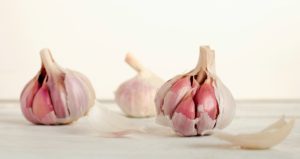 Garlic has been known as the enemy of colds among the South Asians. The most early recorded usage of garlic for treatments dates back to the ancient Greek civilizations. It is believed that even Hippocrates, a famous physician from the ancient Greece, used to prescribe garlic for certain illnesses. It is still used in the modern-day South Asia, as an effective home remedy. Garlic sauce has been used widely to drain the phlegm and clear out the inflamed sinuses. The elderlies used to give the patients, a clove of garlic with chilies to chew, that caused instant drainage of the accumulated mucus and showed anti-inflammatory affects. Although these usages have always been purely one of the ‘grandma’s home remedies’, researches now prove the long assumed properties of garlic. The researches have not only proved it beneficial for colds but also for a number of other conditions. It helps in stabilizing high blood pressure, detoxifies the body, reduces LDL levels, and enhances body’s metabolism. All of these properties come from the sulphur compounds that form when a garlic is chopped, crushed or chewed. To consume it as a remedy you can simply chew 4-5 cloves of garlic a day or crush it and mix it with honey for a more bearable taste.
Garlic has been known as the enemy of colds among the South Asians. The most early recorded usage of garlic for treatments dates back to the ancient Greek civilizations. It is believed that even Hippocrates, a famous physician from the ancient Greece, used to prescribe garlic for certain illnesses. It is still used in the modern-day South Asia, as an effective home remedy. Garlic sauce has been used widely to drain the phlegm and clear out the inflamed sinuses. The elderlies used to give the patients, a clove of garlic with chilies to chew, that caused instant drainage of the accumulated mucus and showed anti-inflammatory affects. Although these usages have always been purely one of the ‘grandma’s home remedies’, researches now prove the long assumed properties of garlic. The researches have not only proved it beneficial for colds but also for a number of other conditions. It helps in stabilizing high blood pressure, detoxifies the body, reduces LDL levels, and enhances body’s metabolism. All of these properties come from the sulphur compounds that form when a garlic is chopped, crushed or chewed. To consume it as a remedy you can simply chew 4-5 cloves of garlic a day or crush it and mix it with honey for a more bearable taste.
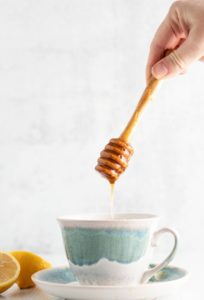 Lemon and honey are used both as food and medicine in many regions of the world. The use of honey to suppress coughs is quite common. However, consuming it in different combinations yields promising results in combating colds and flu. Lemon, on the other hand, is an excellent source of vitamin C, a vitamin that improves the immune system of the body. In the asian households, honey and lemon are used together as a remedy. A tea is prepared by boiling tea leaves in water and adding honey and squeezing lemon juice after taking the boiling tea off stove. This concoction soothes sore throats and boosts immunity. Alternatively, honey and lemon can also be mixed in warm water or simply squeezing few drops of lemon juice on a tablespoonful of honey and then swallowing it slowly can also do the trick.
Lemon and honey are used both as food and medicine in many regions of the world. The use of honey to suppress coughs is quite common. However, consuming it in different combinations yields promising results in combating colds and flu. Lemon, on the other hand, is an excellent source of vitamin C, a vitamin that improves the immune system of the body. In the asian households, honey and lemon are used together as a remedy. A tea is prepared by boiling tea leaves in water and adding honey and squeezing lemon juice after taking the boiling tea off stove. This concoction soothes sore throats and boosts immunity. Alternatively, honey and lemon can also be mixed in warm water or simply squeezing few drops of lemon juice on a tablespoonful of honey and then swallowing it slowly can also do the trick.
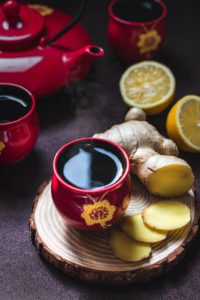 Ginger is known to have anti biotic and anti-inflammatory properties. It also controls blood sugar, blood pressure and weight. It also boosts immunity which makes it a perfect combo of citrus fruits and vegetables. Ginger is native to Asia and has been used here as a treatment for ailments for hundreds of years. Ginger tea might be the first thing in the mind of an asian when it comes to treating colds. Its pleasant and refreshing flavor makes it easy to consume. To make ginger tea water is boiled with sliced ginger and tea leaves (optional), and is then removed from stove, sweetened with honey, and is served with a dash of lemon juice. This tea relieves chest congestion, cough, sore throat, and reduces fever by stimulating sweat glands. It is also enjoyed simply as a cold weather’s drink to keep away the colds.
Ginger is known to have anti biotic and anti-inflammatory properties. It also controls blood sugar, blood pressure and weight. It also boosts immunity which makes it a perfect combo of citrus fruits and vegetables. Ginger is native to Asia and has been used here as a treatment for ailments for hundreds of years. Ginger tea might be the first thing in the mind of an asian when it comes to treating colds. Its pleasant and refreshing flavor makes it easy to consume. To make ginger tea water is boiled with sliced ginger and tea leaves (optional), and is then removed from stove, sweetened with honey, and is served with a dash of lemon juice. This tea relieves chest congestion, cough, sore throat, and reduces fever by stimulating sweat glands. It is also enjoyed simply as a cold weather’s drink to keep away the colds.
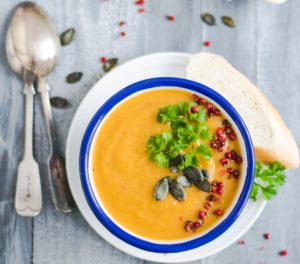 Meat broths and lentil soups are both beneficial for health. Broth can be inferred as the whole nutrient value of meat accumulated in a cupful of water. It has anti-inflammatory affects and the potential of instantly restoring the drained energy. Lentil soups are also highly nutritious loaded with proteins. These are used as hot beverages during a cold or flu. The elderlies have been preparing these soups by boiling eat or lentils with other ingredients such as red or green chilies, cloves, ginger, garlic, turmeric, and others, for some extra added nutrients and benefits. Sipping a cup of these hot soups instantly lifts the fatigue and weakness caused by the ailment. It also boosts immunity and reduces any inflammation in the body.
Meat broths and lentil soups are both beneficial for health. Broth can be inferred as the whole nutrient value of meat accumulated in a cupful of water. It has anti-inflammatory affects and the potential of instantly restoring the drained energy. Lentil soups are also highly nutritious loaded with proteins. These are used as hot beverages during a cold or flu. The elderlies have been preparing these soups by boiling eat or lentils with other ingredients such as red or green chilies, cloves, ginger, garlic, turmeric, and others, for some extra added nutrients and benefits. Sipping a cup of these hot soups instantly lifts the fatigue and weakness caused by the ailment. It also boosts immunity and reduces any inflammation in the body.
 Water is the most important of all remedies as it keeps your body functioning. Although all of the above home remedies help in fighting against the infection, water has always been among the priorities even by the elders. Drinking water helps the body to recover quickly as it helps in the loosening of mucus and soothes the nasal inflammation. It’s useful in other ways too, for instance, washing nose with saline water helps in clearing the nasal congestion. Another common practice includes boiling water in a vessel and then inhaling the vapours for a few minutes for a relieved breathing. Adding cloves and a few drops of eucalyptus oil to the water augments its affects and relieves congestion much more efficiently. This practice proves to be beneficial for the whole upper respiratory tract, healing nose, throat and chest congestion at the same time.
Water is the most important of all remedies as it keeps your body functioning. Although all of the above home remedies help in fighting against the infection, water has always been among the priorities even by the elders. Drinking water helps the body to recover quickly as it helps in the loosening of mucus and soothes the nasal inflammation. It’s useful in other ways too, for instance, washing nose with saline water helps in clearing the nasal congestion. Another common practice includes boiling water in a vessel and then inhaling the vapours for a few minutes for a relieved breathing. Adding cloves and a few drops of eucalyptus oil to the water augments its affects and relieves congestion much more efficiently. This practice proves to be beneficial for the whole upper respiratory tract, healing nose, throat and chest congestion at the same time.
No matter how proficient the medicine gets, these effective time-less home remedies remain the ultimate solutions for all the naturalists.




